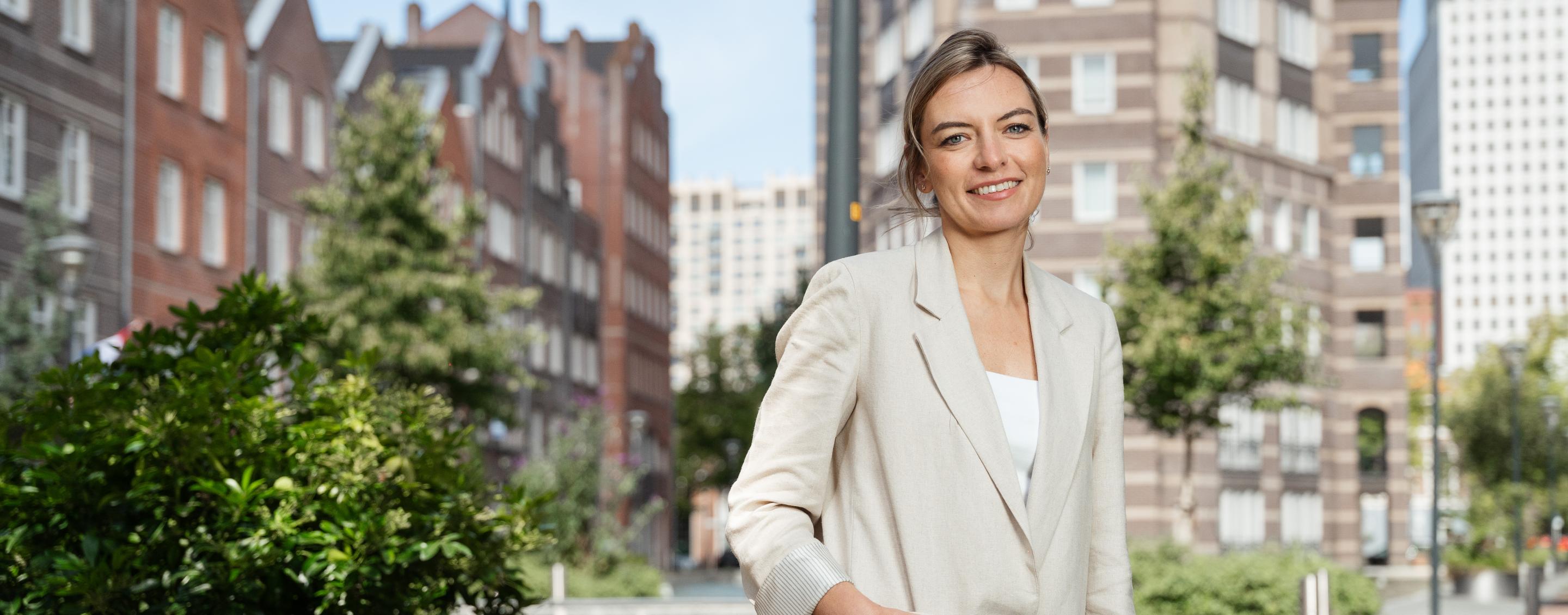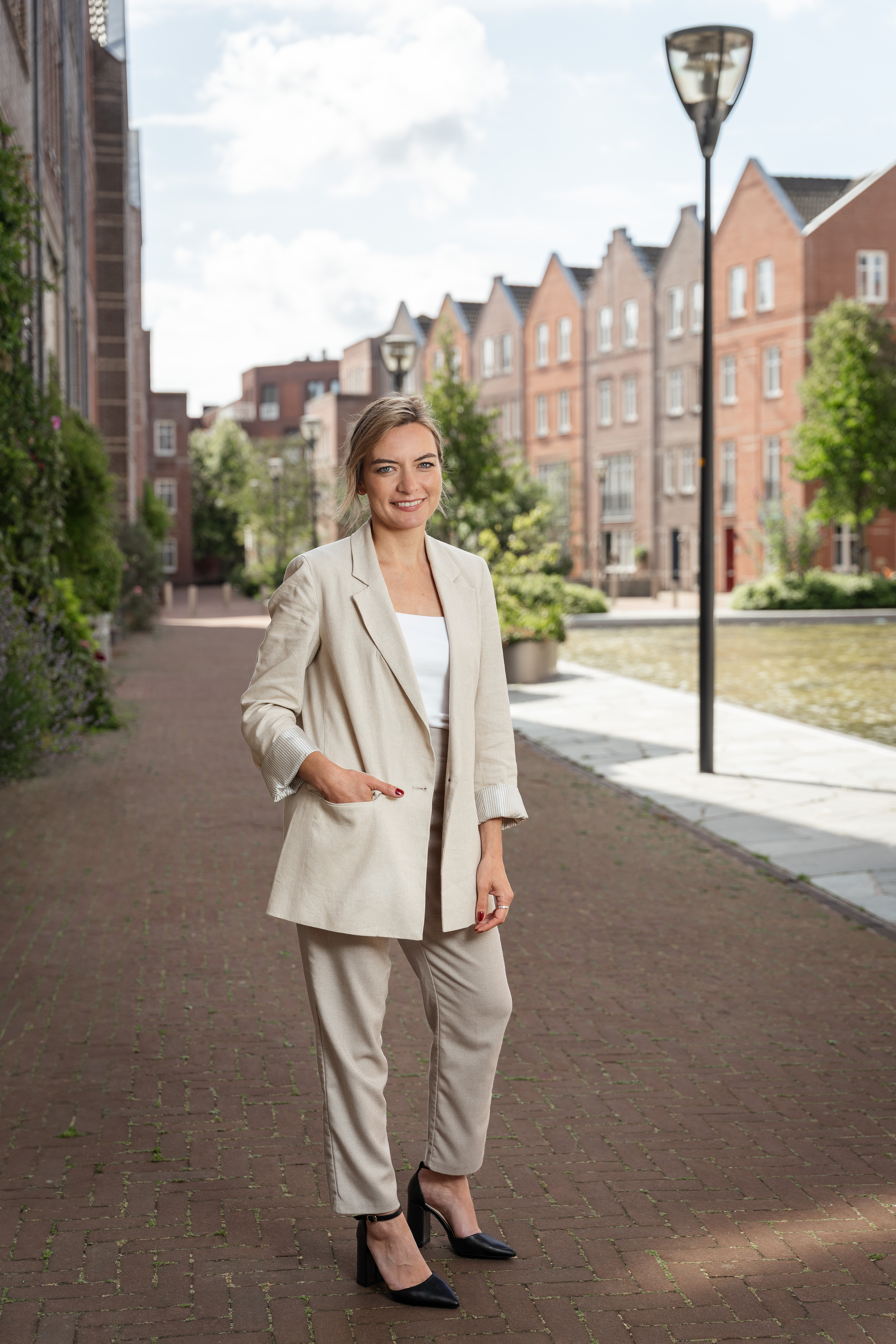
Marija Pop Trajkova: Peace, Justice, and Neighborhood Barbecues
From scepticism to belonging
For Marija Pop Trajkova, The Hague is a city where international ideals and everyday life meet in the most unexpected ways. She has lived here for more than twenty years, long enough to watch the city grow from what she first experienced as a cold, messy place into a vibrant hub filled with culture, connection, and space to breathe. Yet some of her favourite memories are the simplest ones, like barbecues on her wide street where neighbours gather and the city feels like a small town. “Those moments remind me that The Hague is not just a city of peace and justice for the world, but a place where people truly live together,” she says.
A student’s unexpected journey
Marija moved to the Netherlands in 2003 as a student, looking for independence, opportunity, and a chance to explore the world beyond her home country of North Macedonia. She began studying cultural anthropology and development sociology at Leiden University, expecting to live in Leiden or perhaps Amsterdam. The Hague was not part of her original plan, but six months later, it became home. “At first, I found it cold, messy, full of cars, and with little to do,” she recalls. “But the city has transformed so much since then, and so have I.”
“The Hague gives you space to transition between the parts of your life, from work to family to community. That space is what makes me feel at home here.”
Connecting changemakers at The Humanity Hub
Today, Marija is a program manager at The Humanity Hub, a platform that connects changemakers working toward peace and justice. She helps bring together international professionals, local initiatives, and global organisations, creating opportunities for collaboration and collective impact. The work resonates with her, especially as someone who first knew The Hague only from television as the home of the Yugoslav Tribunal. “Back home, The Hague was just a headline, a place we saw on the news. Now it is where I help connect people building a more just and peaceful world,” she says.
Bringing peace and justice to the public
A central part of her role involves leading Just Peace The Hague, the public-facing programming that brings these themes to life for residents and visitors of The Hague. Marija curates and organises events like the Just Peace Festival, including the most recent edition leading up to the NATO Summit, and the Just Peace Open Day, where institutions open their doors to the public. Through storytelling, exhibitions, guided tours, and hands-on workshops, she helps demystify peace and justice by showing how they exist not only in courtrooms and international offices but also in everyday life. “I do not think peace and justice only come from big institutions,” she says. “It is about how we live together with respect, build community, and create opportunities for each other.”
A city built for balance
Beyond her work, Marija treasures the rhythm and variety The Hague offers. She moves easily between the beach, the dunes, the parks, and the busy city centre, all within a short bike ride. “Those transitions give me space to decompress,” she explains. “I can leave work, cycle past the sea, and arrive home ready to focus on my family. Everything feels close, but there is always room to breathe.” Cycling, she says, also gave her one of her most memorable introductions to the city. In her early years, she worked as a pharmacy courier on a heavy cargo bike, delivering prescriptions across the city. “It was hard work, but it taught me The Hague street by street. I discovered neighbourhoods I never would have seen otherwise.”
“Community is what makes The Hague feel like home, whether it is meeting other parents at school or sharing a barbecue with neighbours on the street.”
Parenting in a connected city
Raising her two children in The Hague deepened Marija’s connection to the city even further. From school drop-offs to daycare friendships to chance encounters with other parents, she built a new circle of belonging. “I felt at home here as a student and as a professional, but becoming a parent added another layer,” she says. “It is a commitment to raising my kids here, but also to being part of the social fabric that makes the city feel safe and connected.”
Everyday Dutch life, on her terms
Over the years, Marija has embraced Dutch culture in her own way. She enjoys visiting the Haagse Markt for its energy and variety, calls vegan bitterballen her snack of choice, and has learned to take part in Sinterklaas celebrations with her children. Dutch culture, she says, has also taught her to value directness and to feel comfortable minding her own business without fear of judgment. “It is freeing to live in a place where you can be yourself and make your own choices without anyone questioning you,” she says.
Co-creating opportunities with the International Centre
Her collaboration with The Hague International Centre comes through her work at The Humanity Hub. Together, the two organisations co-create events like the Talent for Good Fair, which connects students and young professionals with opportunities in the peace and justice sector. “The Centre supports newcomers with the practical side of settling in, but also with building networks and communities,” Marija says. “That combination is what helps people not only arrive, but also stay and thrive.”
A city that grows with you
For Marija, The Hague is more than the city of peace and justice that the world sees on television. It is where she built a life that has grown with her through every stage, from student to professional to parent. It is where she can cycle past the sea, bring her kids to school, connect changemakers through her work, and end the day around a barbecue with her neighbours. “It is a city that has evolved alongside me,” she says. “And that is why it feels like home.”
The Hague International Centre 15 Year Anniversary
If you are new to The Hague, supporting newcomers, or simply curious about what makes this city so international, visit the The Hague International Centre. Whether you are looking for information, inspiration, or collaboration, it is the place to start. Over the past 15 years, the International Centre has welcomed 60.000 internationals from all walks of life, each bringing their unique perspectives and experiences.

